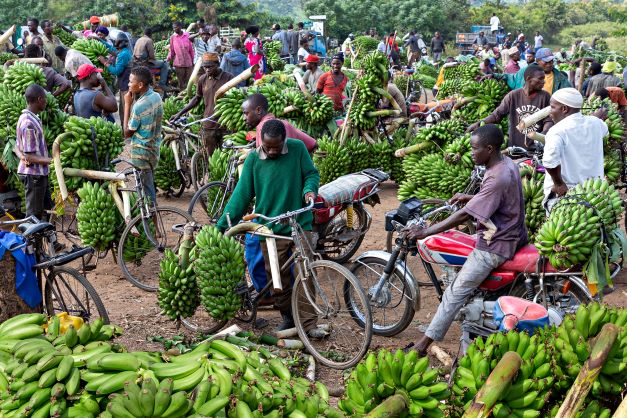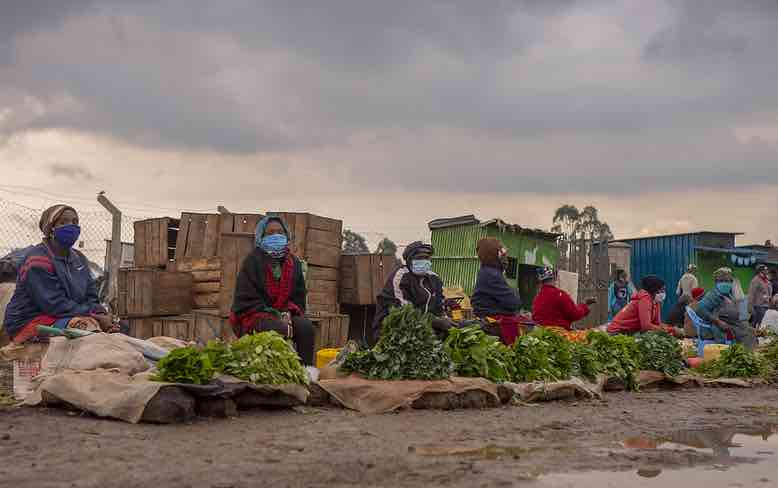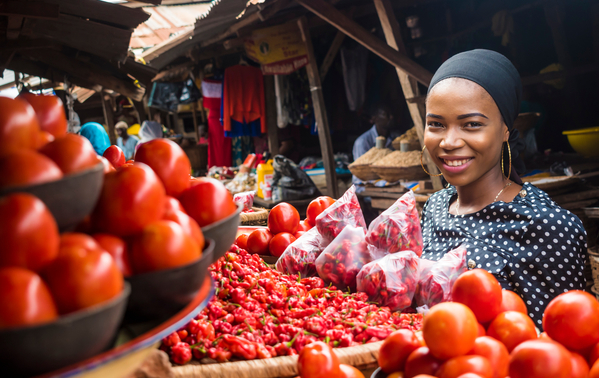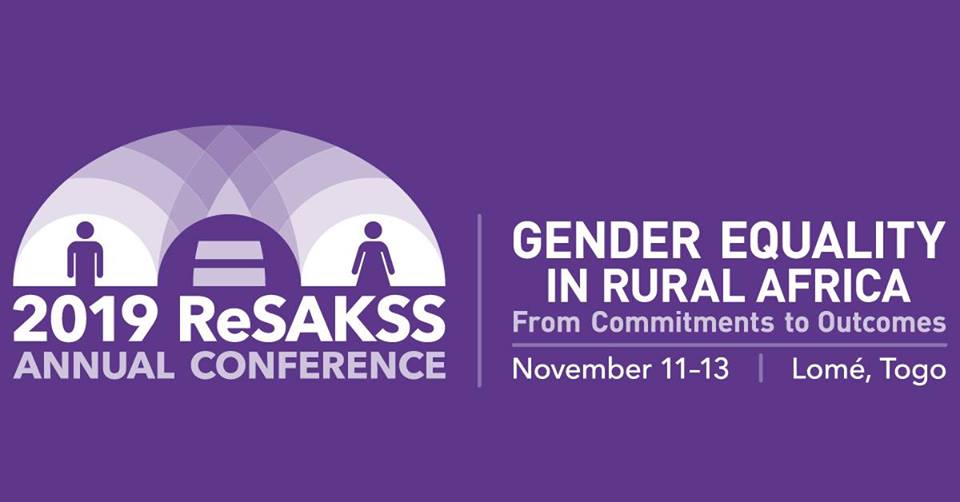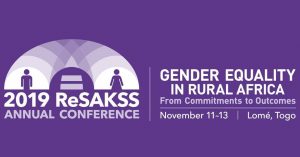 Overview
Overview
The International Food Policy Research Institute (IFPRI), in partnership with the African Union Commission (AUC), is convening the 2019 ReSAKSS Annual Conference to promote review and dialogue on the Comprehensive Africa Agriculture Development Programme (CAADP) implementation agenda.
This year’s conference theme “Gender Equality in Rural Africa: From Commitments to Outcomes” calls for deliberations on the key findings and policy recommendations of the ReSAKSS 2019 Annual Trends and Outlook Report (ATOR).
State and non-state will reflect on how stakeholders should apply a gender lens to various issues among rural populations. The conference will take place at Hotel Sarakawa in Lomé, Togo on 11-13 November.
Objectives
More specifically, the conference seeks to:
Discuss progress, research evidence, and recommendations on gender equality presented in the 2019 ATOR.
Review progress in promoting mutual accountability through agriculture JSRs and preparing the 2019 CAADP Biennial Review report to be presented at the African Union Assembly of heads of state and government in January 2020.
Assess progress in formulating evidence-based, Malabo compliant second-generation NAIPs.
Evaluate progress in operationalizing effective local analytical networks for SAKSS platforms to support CAADP data and analytical needs at the country level.
Review the status of CAADP implementation and progress toward achieving key goals and targets.
Each year, ReSAKSS produces an Africawide ATOR that presents analysis on a feature topic of strategic importance to the CAADP agenda. The 2019 ATOR discusses progress and research evidence on gender equality, a cross-cutting theme in the Malabo Declaration and a key commitment of the 2004 Solemn Declaration on gender equality in Africa. Applying a gender lens to various issues among rural populations will facilitate women’s social, political, and economic participation in agricultural development and provide additional evidence needed to advance gender equality. Gender-sensitive policies and programming are central to effectively advancing Malabo’s agricultural transformation agenda. But what is the progress in achieving gender equality? What are the major challenges, and what are the effective means of overcoming those challenges? What are best practices and successful experiences in Africa and elsewhere? What can we learn from the research evidence?
The 2019 ATOR takes an in-depth look at gender in Africa by examining the intersections between gender and i) context and institutions, ii) assets, iii) shocks and resilience, iv) livelihood strategies, v) income and control of income, and vi) well-being. As in previous ATORs, the 2019 Report also assesses progress toward achieving CAADP goals and the Malabo Declaration commitments using the 2015-2025 CAADP Results Framework.
Expected outcomes
Expected outcomes of the conference are:
Shared understanding of:
Africa’s progress in achieving gender equality, remaining gaps, and the way forward for ensuring that the gender targets are met in the context of achieving Malabo Declaration goals for agricultural transformation.
Actions needed to further advance the implementation of the wider CAADP and Malabo agenda and ensure the achievement of its goals and objectives.
Shared lessons and experiences on:
Preparation and required next steps in completing the 2019 CAADP BR Process as well as critical success factors in promoting more comprehensive, inclusive, and robust JSR and BR modalities.
The formulation and implementation of second-generation Malabo compliant NAIPs.
The operation of country SAKSS platforms in mobilizing local centers of expertise to support technical analyses, review, and dialogue processes in support of CAADP implementation.
Download Conference Note (English: PDF 281K) | French: (PDF 283K)
Download the agenda of the conference here
Learn more about the conference website here

